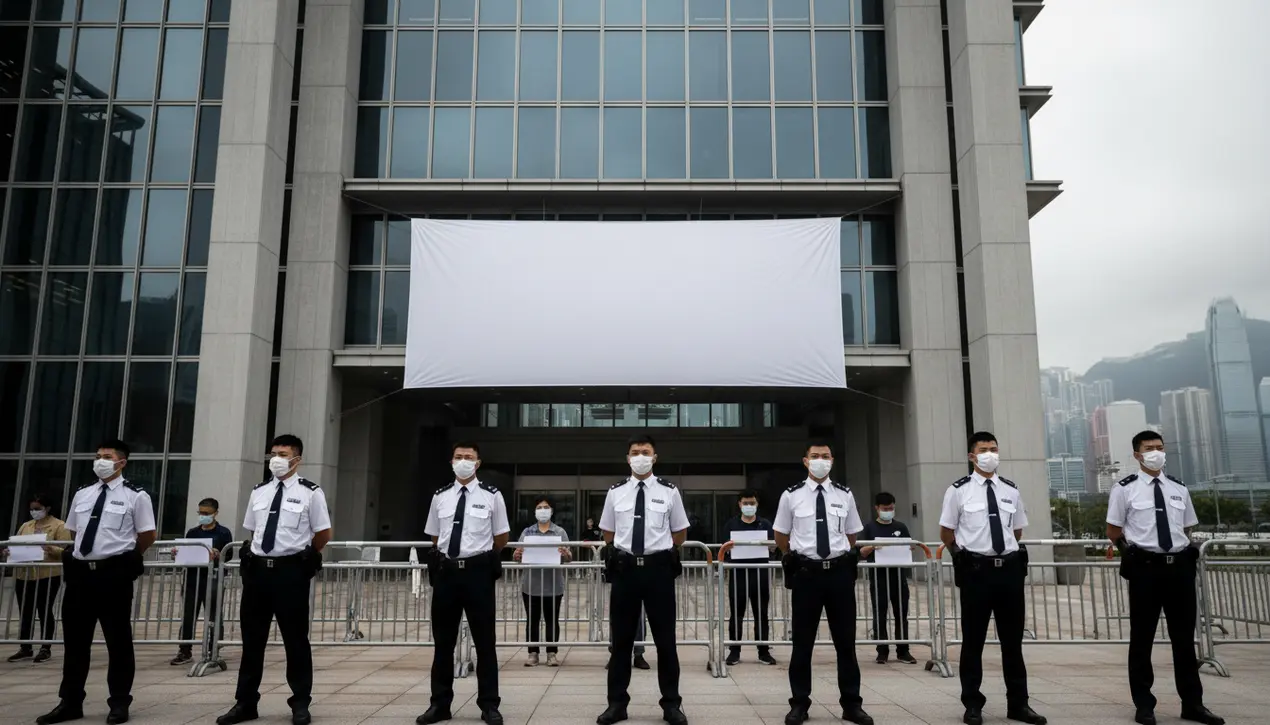
PoliticselectionsElection Monitoring
Beijing Vows Zero Tolerance for Hong Kong Legco Election Interference.
RO
Robert Hayes
3 hours ago7 min read1 comments
In a move that echoes the historical imperatives of statecraft, Beijing’s national security apparatus in Hong Kong has declared a 'zero tolerance' policy for any interference in the upcoming Legislative Council election, a pledge that resonates with the gravity of a Churchillian address in a time of crisis. This stern warning was substantiated by concrete action from the Independent Commission Against Corruption (ICAC), which has charged three individuals for allegedly inciting a boycott of the poll through online reposts and, in a significant escalation, issued arrest warrants for two other men believed to be the original architects of such seditious calls.This is not an isolated skirmish but a critical battle in a protracted political war, a direct continuation of the state's comprehensive campaign to reassert control following the 2019 pro-democracy protests and the subsequent imposition of the National Security Law in 2020—a legislative instrument of such profound consequence that it has fundamentally recalibrated the relationship between the semi-autonomous territory and the mainland. The Legislative Council elections themselves are a pivotal test of this new political reality, a carefully managed process designed to ensure 'patriots administering Hong Kong,' a principle that has systematically reshaped the electoral landscape by vetting and disqualifying candidates deemed insufficiently loyal.The ICAC, traditionally focused on bribery and graft, has now been fully mobilized as a frontline weapon in this political consolidation, its charges for inciting a boycott representing a bold expansion of its mandate into the realm of ideological conformity and public sentiment management. Analysts observing the situation draw parallels to other historical moments where sovereign powers have moved decisively to secure strategic territories, though the unique 'one country, two systems' framework makes Hong Kong a singular case study in modern governance.The potential consequences are manifold: a successfully controlled election would solidify Beijing's narrative of a stable and loyal Hong Kong, thereby encouraging further investment and international engagement on its own terms, while any significant public dissent or international condemnation could further isolate the city and deepen the rift with Western powers. The United Kingdom, bound by historical and treaty obligations, and the United States, with its stated policy of supporting Hong Kong's autonomy, are watching with acute interest, their responses likely to range from diplomatic statements to further sanctions, though the efficacy of such measures remains a subject of intense debate among foreign policy experts. Ultimately, this zero-tolerance stance is a definitive signal that Beijing views the electoral process not merely as a local administrative event but as a matter of national sovereignty, where any form of dissent is framed as subversion, leaving little room for the political pluralism that once defined the city's identity.
#Beijing
#Hong Kong
#Legco Election
#Zero Tolerance
#ICAC
#Boycott
#Arrests
#featured
Stay Informed. Act Smarter.
Get weekly highlights, major headlines, and expert insights — then put your knowledge to work in our live prediction markets.
Related News
Comments
Loading comments...
© 2025 Outpoll Service LTD. All rights reserved.